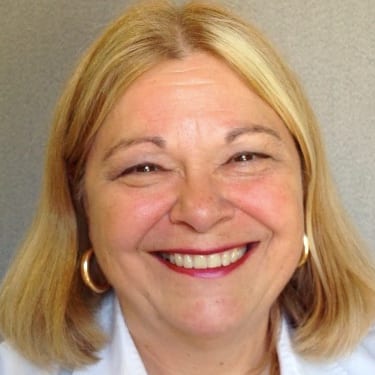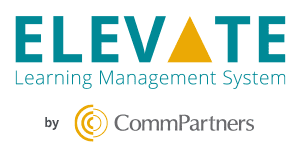
Award-winning learning technologist Dr. Ellen Wagner has extensive leadership experience in the fields learning and learning technology. She’s a self-described learning activist who co-founded the Predictive Analytics Reporting (PAR) Framework, a predictive analytics research effort. And she’s the founder and managing partner of North Coast EduVisory Services, which helps higher-ed and commercial organizations make better use of data analytics resources, talent, and technology platforms.
In this episode of the Leading Learning Podcast, Celisa talks with Ellen about the topic of learning engineering, the role of data analytics in learning, and the related key takeaways for learning businesses.
To tune in, just click below. To make sure you catch all of the future episodes, be sure to subscribe by RSS, Apple Podcasts, Spotify, Stitcher Radio, iHeartRadio, PodBean, or any podcatcher service you may use (e.g., Overcast). And, if you like the podcast, be sure to give it a tweet!
Listen to the Show
Read the Show Notes
[00:18] – A preview of what will be covered in this episode where Celisa interviews award-winning learning technologist Dr. Ellen Wagner.
Reflection Questions

[01:16] – We want to move to offering a reflection question or two to go along with podcast episodes, which will be included here in the show notes.
You might consider the reflections questions on your own after listening to an episode, and/or you might pull the team together, using part or all of the podcast episode to give you common ground and shared terminology for a group discussion.
Below are our suggestions for what to listen for during this episode that might prime you for the reflection questions:
- Listen to Ellen’s emphasis on knowing the problem you want to solve or the question you want to answer before turning to data analytics.
After the episode, think about what problems you’re trying to solve or what questions you’re trying to answer with data analytics.
- Ellen talks about how branching out into data science made her uncomfortable—she had to be willing to give up her position of knowledge, which she holds in instructional design in order to be able to benefit from and tap into the valuable perspective and tools from other fields.
After the episode, you might want to think about where you’re too comfortable and where you might need to get uncomfortable in order to benefit from a new perspective.
[03:44] – Introduction to Ellen and some additional background information about her work.
Learning Engineering

[05:43] –I’ve been aware of your name and work for years at this point, and the recent eLearning Guild report you wrote made you come front of mind. The report is called Learning Engineering: A Primer. So what is learning engineering, and why the renewed interest in this not-new idea?
Ellen shares that she became fascinated with the term “learning engineering” around the time she finished a large research project dealing with learning analytics. And learning analytics is one those places where in ed-tech they had to come face-to-face with the reality that many of the platforms they use generate tremendous amounts of data.
She talks about how this idea of working with learning analytics started to increase and become more broadly relevant. And with technologies becoming more complex, we needed to turn to specialists in other disciplines in data and computer sciences for help.
Ellen describes learning engineering as the opportunity to take better advantage of the type of professional competencies that take place in settings where the platforms and skills that are needed to make our tools work at the levels we want them to work.
So learning engineering is a much broader view of learning and how it happens. It more accurately captures what we have to do to support learners and deliver effectively.
Ellen says if there were a simple way to think about it (which isn’t necessarily the most accurate way), you could think of learning engineering as the packaging that might be used—the administration types of concerns that you might need for dealing with a course, experience, content, etc.
Data Analytics
[12:16] –Data analytics has been an area of interest for you for a while now—you co-founded the Predictive Analytics Reporting (or PAR) Framework, a predictive analytics research effort that was later acquired.
What’s your take on the role of data analytics in learning? What can it help with, and what do you see as the dangers of data analytics?
Ellen first notes that this ties back to learning engineering. When she talks about learning engineering, she says you’re going to hear a lot more interest in learning analytics and the use of data in decision-making. This is because of her experience needing technical expertise (from data scientists) to make progress in her learning design work—they were the ones that could actually help her figure out how to actually make decisions around the data.
Ellen shares an example of this, which also highlights how getting too much data might actually get in the way of finding the answers you are looking for. So being careful with the data you’re collecting is important.
[15:35] – Any other thoughts around how to best approach learning analytics and data analytics?
Ellen recommends that you start simple and really have an idea of what type of problem you are trying to solve with your data analytics. Not having an idea of a problem to solve will allow you to get work done but when you’re in search of an answer to a hypothetical question, her experience has been that you can be seeking that answer for a really long time and you might never know if you found it.
She explains that data analytics is a lot of thinking about what you need to figure out and then looking for the information that will help you determine the answers to your questions.
Ellen talks about understanding the reasons why you want to use data in your organization, which for the most part is to inform their decision-making. So after determining what problem you are trying to solve, you need to figure out what information sources you need to answer the question.
Also think about things like what types of analyses you’re going to need from that data to get answers to the questions. And do you have the staff on board to help you answer those questions. Ellen stresses that this doesn’t have to be complex.
Sponsor: AUTHENTIC Learning Labs
[20:01] – If you’re looking for a partner to help you clarify the problems you might solve or the decisions you might make using data analytics, we encourage you to check out our sponsor.
AUTHENTIC Learning Labs is an e-learning company that offers products and services to help improve your current investments in education. One key product is Authentic Analytics, a dedicated suite of visualization reports to help analyze and predict the performance of education programs. Organizations use Authentic Analytics to easily scan through volumes of data in intuitive visuals, chart performance trends, and quickly spot opportunities, issues, and potential future needs.
[20:54] –Ellen shares an example (a project using predictive analytics to find students at risk for dropping out of college) to highlight the power of knowing what question you’re looking to answer when making use of data analytics.
What Learning Businesses Need to Know About Learning Engineering
[23:51] –What do you think is critical for everyone working in a learning business (regardless of job title) to understand about learning engineering so they can effectively play their role in producing good learning experiences?
Ellen thinks the future of learning engineering is going to be pretty directly tied to the future of instructional design. She used to think of the two as oil and water but now sees them as peanut butter and jelly—so she wants to be able to have the opportunity to bring the engineering strengths and capabilities to her design work to strengthen it.
Since Ellen sees these as a combination, what it means as a designer is that she’s needed to create competencies within herself where she has better opportunities to actually collaborate and communicate with her new learning engineering partners.
This means she’s had to go back and learn a lot more about data science and computer science. So Ellen has had to let go of her instructional design expertise, be humble and learn about a whole new discipline from the bottom, up.
She admits that although it’s fun, it’s also made her a bit uncomfortable because she’s had to let go of everything that comes along with establishing expertise to be open to hearing things described in a completely different way.
Sponsor: CommPartners
[27:23] – If you’re looking for help bridging gaps in your team’s abilities and tapping into new expertise and knowledge, we encourage you to check out our sponsor.
CommPartners helps learning businesses conceive, develop, and fulfill their online education strategy. Their solutions begin with Elevate LMS, an award-winning learning platform that provides a central knowledge community and drives learner engagement. To extend the value of Elevate, CommPartners provides a wide range of online education services including curriculum design, instructional design, fully managed Webinars, Webcasts, livestream programs, and virtual conferences.
The Learning Landscape – Present and Future
[28:18] – What do you see as the current opportunities and threats to continuing education, professional development, and lifelong learning, the good and the bad of the current learning landscape? And what do you see as most exciting things on the horizon for learning?
Ellen talks about her recent experience in Sweden when she visited the ABBA Museum and how she got to perform on stage “with” ABBA in the holographic museum. This highlights how we might find ourselves performing in learning settings with our holographic collaboration partners over time and space, which she notes is a bit of a head trip.
This type of technology is an amazing opportunity to learn and engage with people in ways we never could’ve imagined before. She discusses the potential possibilities for learning related to what she experienced which involved transcending time, transcending space, and engaging with people who aren’t even there.
Ellen adds that we all need to keep in mind that we think these advancements are all coming in the future but we don’t realize how fast the future is going to be here.
[33:10] – What is one of the most powerful learning experiences you’ve been involved in, as an adult, since finishing your formal education?
Ellen shares about her experience at a National Science Foundation meeting and how she worked with other researchers to create a white paper in just a few hours.
[36:21] –How to connect with Ellen and/or learn more:
- LinkedIn: https://www.linkedin.com/in/ellenwagner/
[37:29] – Wrap-Up
Reflection Questions

- What problems are you trying to solve or what questions are you trying to answer with data analytics?
- Where might you and your team be too comfortable? Where might you need to get uncomfortable in order to benefit from a new perspective?
If you are getting value from the Leading Learning podcast, be sure to subscribe by RSS, Apple Podcasts, Spotify, Stitcher Radio, iHeartRadio, PodBean, or any podcatcher service you may use (e.g., Overcast).
We’d also appreciate if you give us a rating on Apple Podcasts (formerly known as iTunes) by going to https://www.leadinglearning.com/apple. We personally appreciate your rating and review, but more importantly reviews and ratings play a big role in helping the podcast show up when people search for content on leading a learning business.
And we want to give a quick shout-out to willdcoyote for his recent five-star rating and review titled “relevant and educational” that says:
I’ve now listened to a few of the podcasts and I’m loving how relevant the information is as an association professional. Loved the episode about credentialing. Never understood it really. Now I do. Thx.
And we would be grateful if you check out our sponsors for this quarter. Find out more about AUTHENTIC Learning Labs and CommPartners.
Finally, consider telling others about the podcast. You can send a tweet by going to leadinglearning.com/share. You can also Like us on Facebook at facebook.com/leadinglifelonglearning and share us with others there. However you do it, please do help to share the good word about the podcast.
[39:44] – Sign off
See Also:



 The Whys and Wheres of Leading Learning
The Whys and Wheres of Leading Learning
Leave a Reply